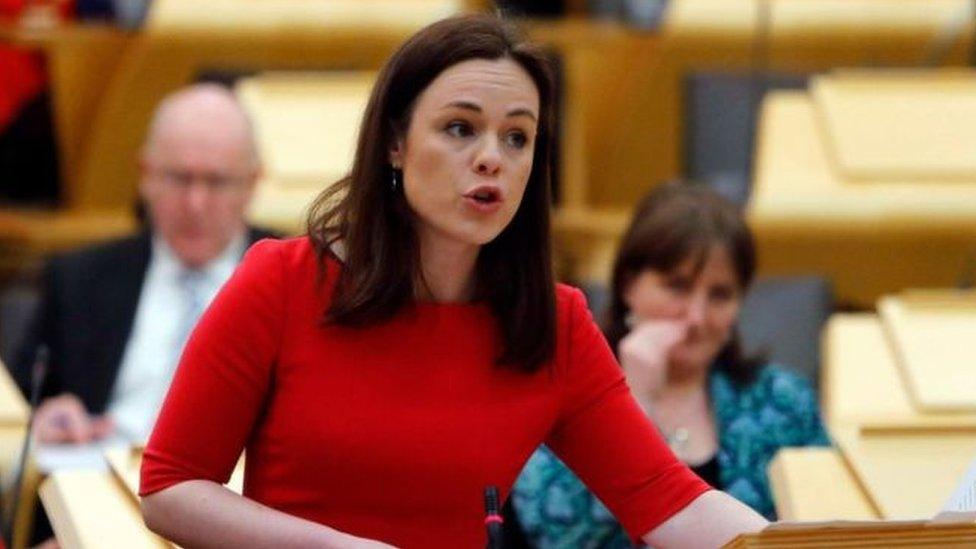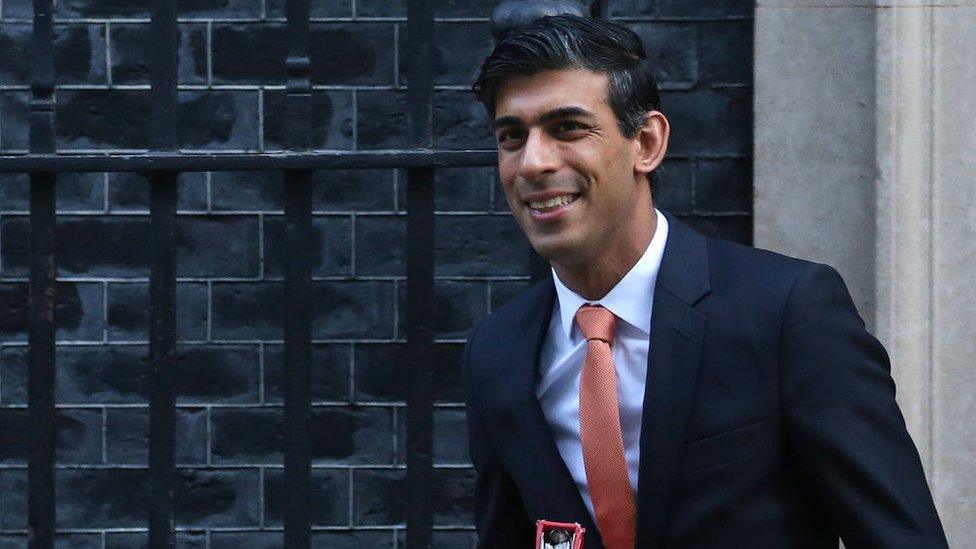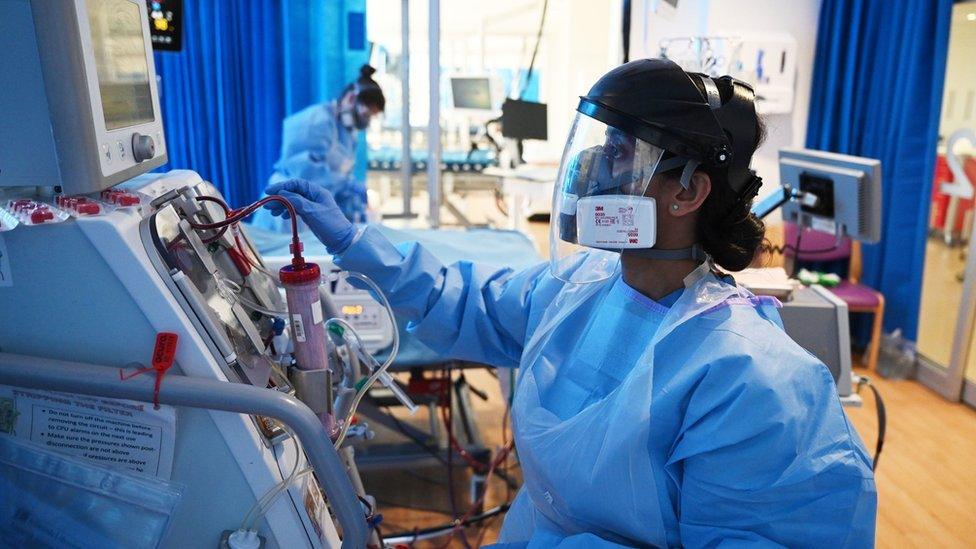Treasury 'rumbled' on Scottish funding boost claims
- Published

Finance Secretary Kate Forbes wants more clarity from the Treasury
The Institute of Fiscal Studies has rumbled the Treasury for obscuring its funding calculations in Rishi Sunak's summer statement.
The gap between claim and counter-claim on what comes to Holyrood has rarely been bigger, so here's an attempt at clarity.
We were told £800m was coming to Holyrood.
The pledge came after the summer statement by the chancellor, Rishi Sunak, and appeared to be in lieu of a bundle of announcements to help the economy through the Covid-19 crisis.
But "bundle" was the word. It lacked transparency.
I sought to pick it apart with the limited information available on the day and in retrospect I didn't do too badly - I've done worse.
As I noted, one key to understanding a Westminster budget, or even a summer statement, is to look at how much is released through the Barnett formula for spending in Scotland, Wales and Northern Ireland.
The rhetoric and the next day's headlines are intended to big up the generosity and financial genius of a chancellor. The consequences for Holyrood etc are intended to limit the devolved administrations to no more than they deserve.

A one-off £1000 payment to employers for every furloughed employee retained was among the announcements in Chancellor Rishi Sunak's summer economic plan
There tends to be a large gap between rhetoric and the Barnett figure and this was the biggest ever.
The Treasury said £800m and Scotland's finance secretary, Kate Forbes, said £21m.
The Institute of Fiscal Studies has had more time than I did to figure this out, and reached the same conclusion: that the Treasury was obscuring much of what it should have made clear.
Having published this conclusion in a blog on Thursday, it's been thrown into Scotland's constitutional battlefield and even more obscured in the fog of war.
Old money
So, from what we now know, here's an attempt at a bit more clarity.
The £800m was for real, and largely made up of a Scottish share of spending for the NHS and for personal protection equipment to cope with Covid-19. This much had either been announced before, or it was expected, but the sum unknown.
The Scottish government could spend that money elsewhere, but it's not likely to do so.
Yet the chancellor had barely mentioned his boost to public spending, alongside his plan for jobs. You wouldn't know that a lot more was being spent on the former than on the latter.
Nor would you know that money was being taken from other committed budgets to help pay for some of his plan for jobs.

UK government spending on protective equipment for the NHS will result in more money for the Scottish government
So when he said there would be a scheme to pay for English householders to make energy-efficient home improvements, that didn't come with any more for the devolved administrations.
A boost to apprenticeship spending was half-funded from other budgets. The other half did result in an additional grant to Holyrood and that seems to have been where the £21m came from.
Two days before the summer statement, £1.57bn of new funding was announced to help arts and culture. Scotland got £97m of that. Kate Forbes treated it as old money, though it was only 48 hours old.
The IFS's David Phillips adds the £21m and £97m together to reach the sum of new funding for Holyrood as part of the plan for jobs.
The Kickstart scheme, paying employers to take on young people for six months of work experience, is to spread across Britain (but not Northern Ireland).
And, likewise, a very large part of Rishi Sunak's plan for jobs is direct spend on the whole of the UK, for instance via the jobs retention scheme which got a £1,000 per person bonus for employees retained until next February, and Eat-Out-To-Help-Out next month.
The Westminster funding coming through Holyrood is a relatively small part of the bigger picture. And right there, in the bypassing of Holyrood, you have the starting point for a new dimension in the constitutional debate. Those City and Region Deals have been paving the way for several years, and it's surprising that more has not been made of them.
Obscured calculations
The bizarre bit of this £800m claim is that it should perhaps have been higher. It did not include the money heading for Holyrood in lieu of the cut in stamp duty/transaction tax in England.
It's not yet known how much that will mean for Ms Forbes' Holyrood budget, or when it will become clearer. She is keen to point out that the lack of clarity makes it very difficult to budget. The IFS agrees with her on the lack of clarity, and calls for the Treasury to do better.
So, before many other conclusions are drawn from this - and they have been, believe me, in the social media battleground - I humbly contend that the Treasury does itself no favours by obscuring its calculations, and over-claiming for its generosity.
But this does not mean it is treating Scotland unfairly.

The Barnett formula calculates how much of the Scottish government's budget should change as a result of UK government policy decisions
For those engaged in the pitched political battles on this issue, when you come up for breath, it is worth considering that if you like what the IFS says this week, treat its expertise with due respect on occasions when it is less helpful to your cause.
And please don't treat the current financial year as any guide to the future trajectory of public finances of either the UK or an independent Scotland, except to factor in higher debt for a long time to come.
In every possible way, 2020-21 is exceptional. Let's hope so, anyway.
- Published8 July 2020
